Core Practices
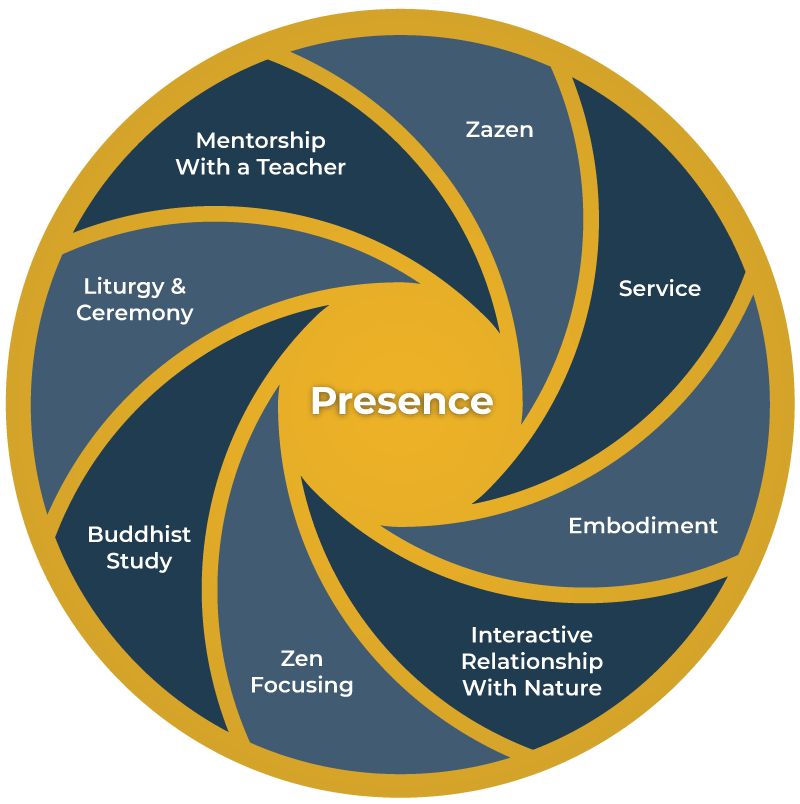
All Zen Garland Order practices are meant to awaken practitioners to the multiple perspectives of reality, “boundlessness” (sunyata), and to guide them to manifest that realization with authenticity and integrity in their personal lives.
We believe that experiencing reality as our identity with all creation is the fundamental and necessary ground for the ethical transformation of our values, motivations, and priorities. But awakening is not enough. We must continue our lifelong spiritual journey by facing the more profound and difficult task: how to live this dynamic unity in the indeterminacy, fluidity, and diversity of daily life.
Our Zen Garland Order 8 Core Practices are designed to assist that lifelong development. Each of our 8 Core Practices contains elements of all the other Core Practices, and each is present as well in every other of the Core Practices.
Zen Meditation
There is no such single “thing” as zazen or Zen meditation. Meditation is sustained, unified bodymind attention to a specific field of experiencing. Bodymind is a description of human consciousness that includes all our senses and thinking capacities. Zen Teachers guide students in many forms of meditation, based on each student’s experience, motivation, developmental needs, and capacity. These include breath work, merger and absorption, koan practice, and shikantaza or momentary awareness without attachment. Ultimately, meditation is bodymind Presence: presence of consciousness in the multiple perspectives and infinite possibilities of each moment.

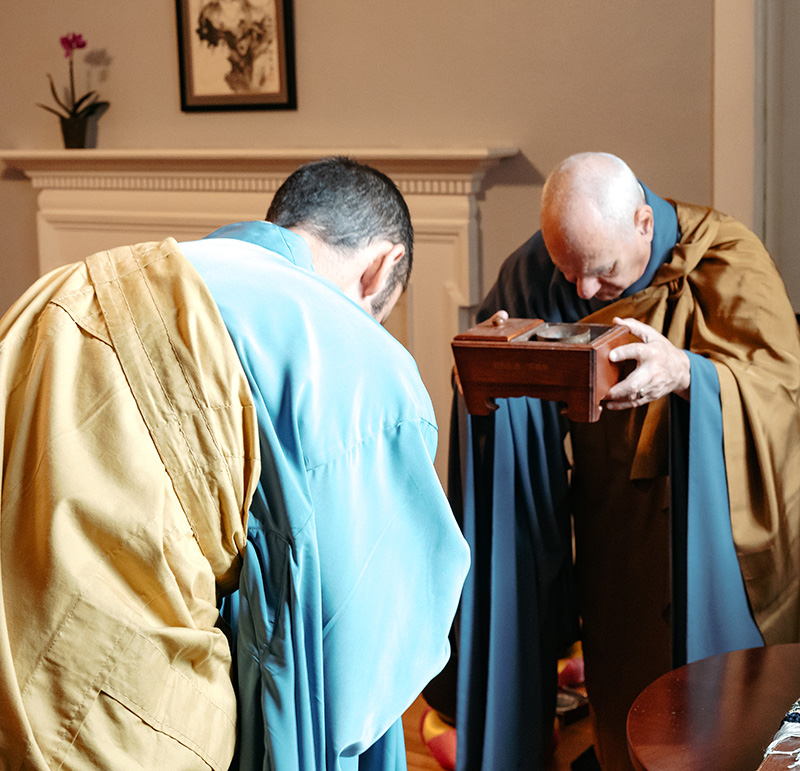
Study Relationship with a Zen Teacher
Zen study-practice takes place in private individual sessions in person or online with one of our teachers of your choice. Zen Garland Teachers have trained for decades in Zen and many other life skills. They have been recognized for their maturity, integrity, ethical nature, spiritual accomplishments, and capacity to care for others.
The practice of Zen is about your life and can liberate you to be fully human, to have a full range of feelings and a strong capacity to engage all your faculties and talents in your personal mission and responsibilities. Our teachers therefore address you holistically and respectfully as a co-creative force in the world. Individual studies include the Harada-Yasutani koan curriculum, readings from Dogen Zenji and dialogue on how your life is unfolding.
Buddhist Text Study
Teachers in the Zen Garland Order are experientially grounded, intellectually engaged and academically trained in Zen and Buddhist religious principals, history, texts, commentaries, and philosophy. In addition to courses on formal Zen and Buddhist topics, other courses include applications of Zen practice to psychology, philosophy, ecology, art and other disciplines.
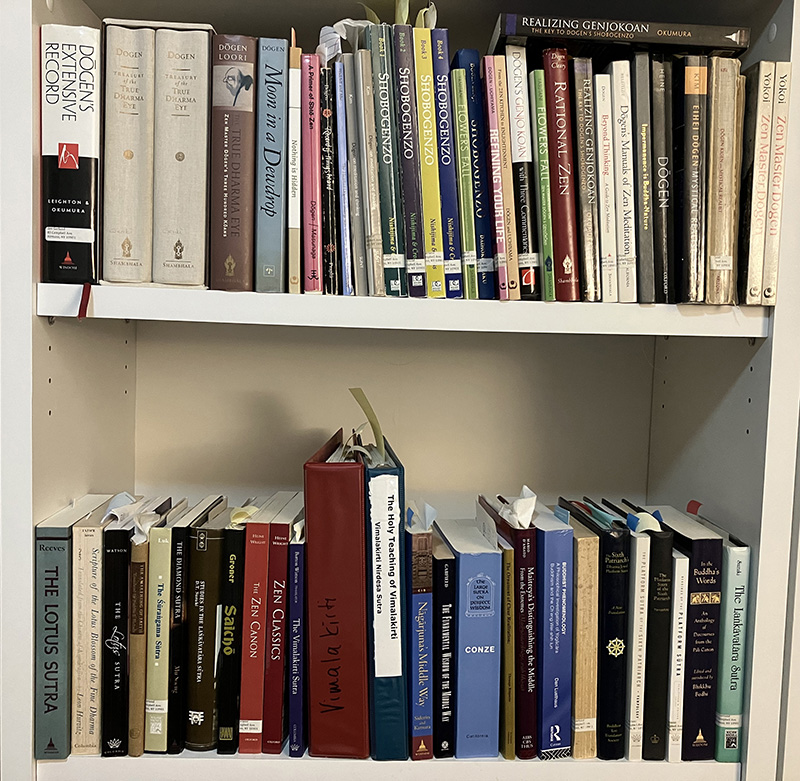
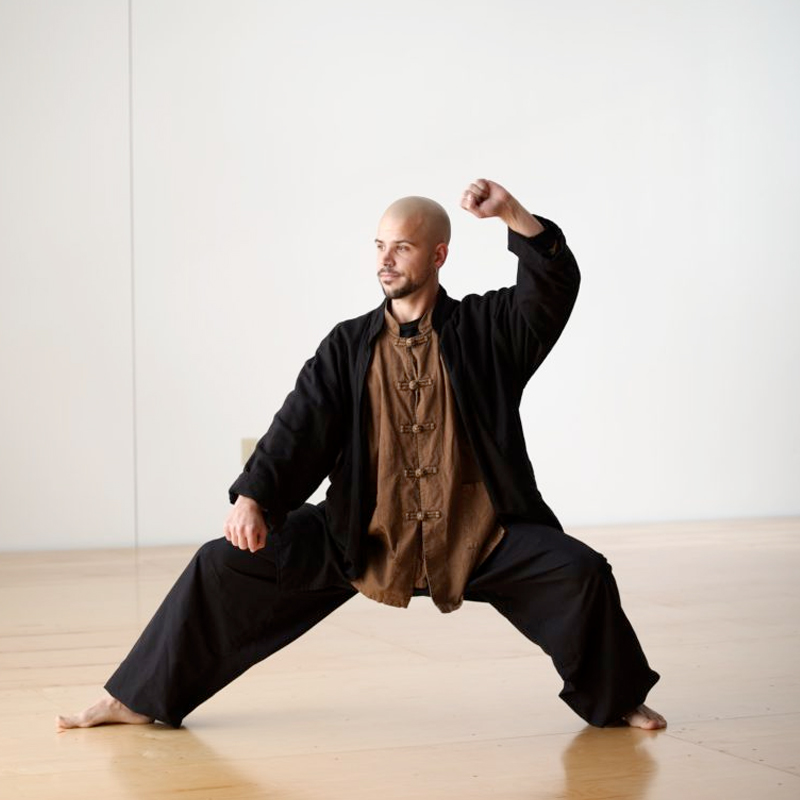
Embodiment Practices Developing Bodymind Consciousness
Within our Zen Garland Order when we refer to embodiment practices, we point to systems of dynamic movement-based activities conducted in a specific manner. Within this praxis, our aim is to awaken and refine bodymind consciousness, while increasing energy and wellbeing. This type of practice has existed across many traditions in China, India, and Japan historically. It has been termed in Japanese as “shugyo” or “kugyo” where these terms imply a holistic type of refinement accomplished through and integrated training of body, breath and consciousness. In his work The Body, Self-Cultivation, and Ki-Energy, Yuasa Yasou eloquently offers an image whereupon practice initiated in bodymind and movement ignites and stokes a “fire” or energy that affords the opportunity to awakening through entering through the body and movement as a gate.
Zen Focusing
Buddhism has not had an adequate psychology to help individuals, families and groups deal with dysfunctional neuro-biological heritage or historical wounding and misshaping that prevents healthy, cooperative, and fulfilling participation in the world. When practitioners have impediments in major domains of their functioning, we refer them for professional guidance. We are integrating Roshis Genki and Genmitsu’s form of Eugene Gendlin’s Focusing Oriented Therapy, Zen Focusing with Zen practices as a way of awakening to, reintegrating, and healing wounded and split-off parts of ourselves that most spiritual practices do not address, but bypass!

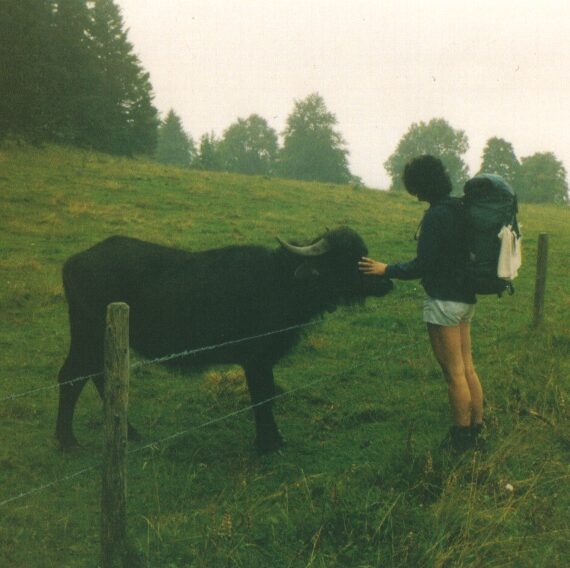
Intimately Relating to the Natural World
The consequences of humanity’s objectifying, utilitarian, and materialistic dominance over the natural world are so evident in the increasing emergence of extreme weather, global warming, rising sea levels, droughts, famines, and the devastation and mass extinctions occurring in the animal, bird, fish and insect populations.
Zen enlightenment awakens us to the unity of life. We find our very being intrinsically interwoven with a burgeoning biosphere where light, water, plants, animals, microorganisms, soil, and humans all are interdependent, interacting and co-creating life.
Zen Ethics in Vows, Liturgy & Ceremony
All rituals and ceremonies in Zen are meant to awaken, encourage, and sustain wisdom and compassion and help practitioners lead ethical and meaningful lives. They carry the power of tradition and the felt sense of the holy. The Zen Garland Order Vows provide a flexible, situational, and contextual bodymind approach to ethical behavior. Our ethics should integrate all aspects of our lives, guide our moment-to-moment choices, and set our longer-term directions. When we treat ethics as a koan, the whole universe becomes ethical interdependence, ethical interaction, and ethical co-creation.Ritual embodies our ethics and guides us in what to hold sacred, what to remember, what to illuminate and empower, and how to celebrate and mourn. Ritual in Zen is not dull recitation and repetition and is more than metaphor and symbol. Performed correctly, Zen rituals are incantatory, manifesting and transmitting a direct experience of the ritual’s meaning. They encourage us to devote the ordinary, ongoing, intimate particulars of our lives to the healing, salvation and liberation of all creation.
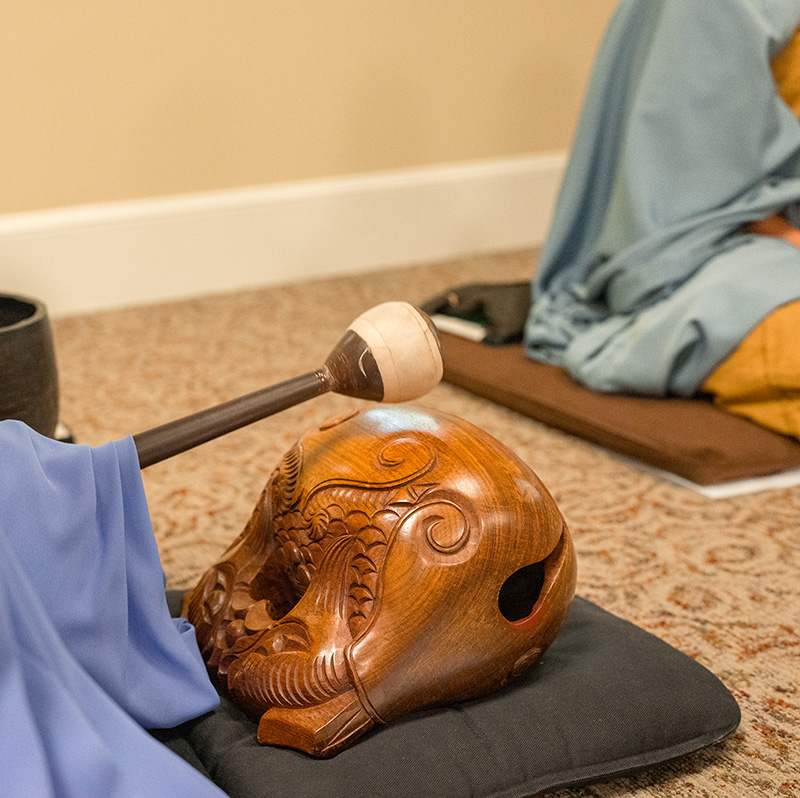
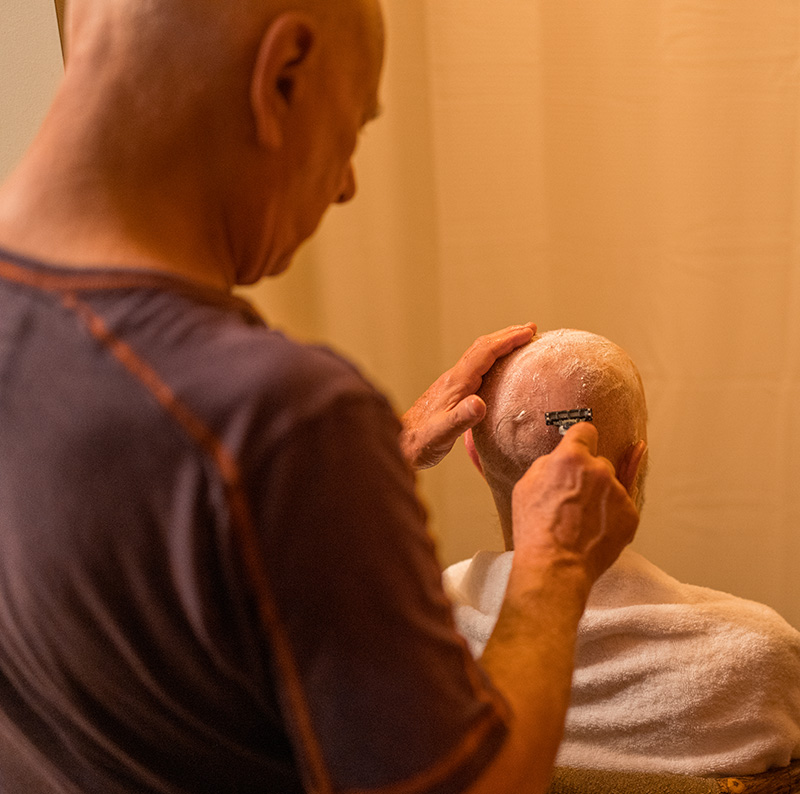
Service
Zen, as part of Mahayana or Great Vehicle Buddhism, is devoted to the salvation, healing, and liberation of all creation. The Zen Garland Order’s ethical framework, embodied in The Zen Garland Vows, requires that Zen practitioners actively engage suffering in the world, providing Presence as a field of benefaction. Practicing engaged compassion means seeking practical ways to apply and implement the insights from various forms of Zen practice, realization, and teachings to situations of social, political, environmental, and economic suffering and injustice. Currently the affiliate centers and individual members are engaged in many social service projects. Recent effort include our sponsoring an Afghan and a Guatemalan family each resettle in the USA, funding one of our Zen Priests in Poland to provide assistance to arriving Ukrainians, creating a Community Organic Agriculture Teaching and Harvest-Share Garden, doing state specific and deployed Disaster Mental Health.